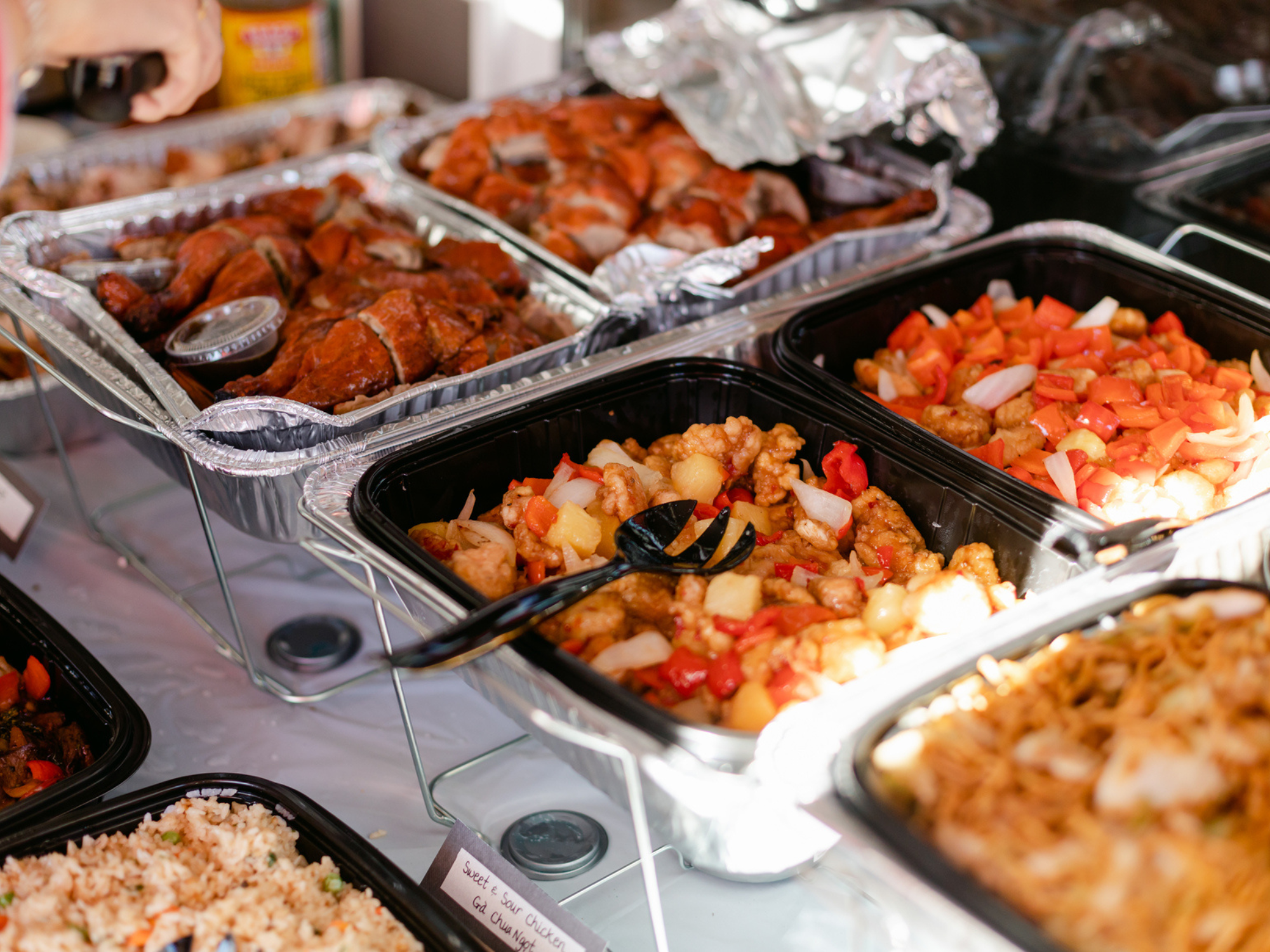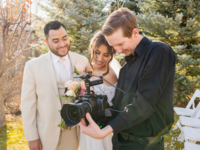20 Important Points to Include in Your Wedding Venue Contract
Choosing your wedding venue is a major decision (and a pricey one, too). According to The Knot 2023 Real Weddings Study, booking a venue is the most expensive decision couples make while planning, and the average cost of a wedding venue in 2023 was $12,800. With that in mind, a wedding venue contract is especially important to ensure that you're getting the most out of your investment. We asked attorney Leah Weinberg, co-founder and partner of Oduberg Law, LLP, to explain exactly what should be included in a wedding venue contract and the most important points to negotiate before you sign anything. "For many people getting married, their wedding venue is going to be the biggest line item in their wedding budget, especially if it's a full-service venue that provides catering," says Weinberg, a former wedding planner who now specializes in legal matters for the events industry. "When you're spending that much money, it's critical that you know exactly what you're getting and precisely what the venue's obligations are. You don't want there to be any questions about what the venue is providing for their fee."
It's definitely not as fun as picking out flowers, shopping for wedding attire or tasting hors d'oeuvres, but going through your wedding venue contract with a fine-tooth comb can help prevent (or minimize) unexpected issues later on. "First and foremost, please actually read your wedding venue contract from start to finish," Weinberg says. "That may seem like an obvious suggestion, but the number of people who don't actually read their wedding contracts and ultimately don't know what they're signing is staggering." And while Weinberg says you might come across some "legalese" terms you're unfamiliar with, your venue should be able to provide clarification on anything that's confusing—but keep in mind that they aren't your attorney and shouldn't be viewed as giving you legal advice, she explains. Still need to find your wedding venue? Visit The Knot Vendor Marketplace as your first order of business. On The Knot, you can search venues by location, then filter the results by price, style, amenities, guest capacity and more. Finally, use this wedding venue contract checklist and list of wedding venue legal requirements to double-check that everything is officially squared away.
1. Name and Contact Information for All Parties Involved
This may seem obvious, but the full names for you, your partner and anyone else who's financially involved (for example, a parent if they're contributing money) should clearly be listed in the wedding venue contract. The wedding venue's legal business name—or the name of the owner or liable management company—should also be clearly stated.
2. Date and Time Frame of the Event
Your wedding venue contract should outline the exact date(s) and rental hours that you're paying for. If you're renting the venue for multiple days, include the full date range and the official rental start and end times, in addition to the hours that you're legally allowed to access the property within that time frame.
3. Specific Areas and Rooms at the Venue to be Reserved
Some wedding venues might give you free roam of the entire property, while others will have very strict restrictions about where you can or cannot go. Either way, it's best to get this in writing so that everyone's on the same page. It also adds accountability for the venue in the event that strangers or others on the property wander into your reserved space without warning.
4. Description of the Existing Venue
When you rent a car, you're asked to document any damages or issues before you even leave the parking lot. You can think of this as a similar scenario when it comes to your wedding venue agreement—make sure that existing damages or other areas of concern on the property are addressed in writing so that you aren't held liable for issues you didn't actually cause. Don't forget to include areas you're using beyond the main event space, like dressing rooms or restrooms.
5. Venue Setup and Cleanup Times
Timing is everything on your wedding day, so you want to make sure that your wedding vendors (like the florist, planner, caterer and DJ) can access the venue as needed. Your wedding reception venue contract should include the earliest time that your vendors can arrive, along with any restrictions or special requests regarding venue access, staging areas or parking. Post-event cleanup should also be outlined in your contract, specifying when everything needs to be completed and when all vendors/guests must leave the premises. Once the details are approved by your venue, add the setup and cleanup times to your other wedding vendor contracts so everyone's on the same page.
6. Venue Capacity
You probably already checked the property's guest capacity before choosing it as your wedding venue, but confirm in writing that you can comfortably (and legally) accommodate your guests at the venue while adhering to local fire and safety regulations. If you're renting multiple rooms or areas at the venue, you might want to list each one as a separate line item in the contract.
7. Venue House Rules
Most venues have "house rules" about things like using confetti or candles, says Weinberg. For example, confetti or flower petal tosses can leave stains on floors or sidewalks, and some venues explicitly won't allow you to use them as part of your wedding. Some venues might have rules prohibiting any real candles, sparkler exits or open flames, while other venues simply require candles to be in glass sleeves or vases. Ask about specific restrictions during your wedding venue tour and make sure that all of your decor is approved by the venue before the wedding day, Weinberg recommends.
8. Itemized List of What's Provided by the Venue for the Event
You might ask yourself: is it really necessary to go through every single detail? We'd say that it's better to be safe than sorry, so request an itemized list that includes everything the venue will provide. Make note of basic rental items like linens, tables and chairs, plus waitstaff, other event staff, and special services, such as coat check or valet parking. Having everything in writing will minimize the possibility of miscommunication and you'll know exactly what you need to supply on your own.



9. Name of the Venue Manager or On-Site Contact for Day of Event
Weinberg explains that while your wedding venue contract might not list the exact name(s) of the person(s) working onsite for your wedding day, it should specify the staff or team members who will be present—such as a property coordinator, security staff or other attendants.
10. Proof of Insurance
Whether you've decided to personally obtain a wedding insurance policy or your venue asked you to do so, it's smart to confirm that the venue also has its own insurance policy in place. Include the details in your wedding venue contract, including what's covered and the limit of liability.
11. Proof of Liquor License
Although the exact requirements vary by location, a liquor license is required by most states and counties if you want to legally serve alcohol onsite. Ensure that your venue's liquor license is up-to-date before moving forward with the contract. If your venue doesn't have an existing license, you might be responsible for obtaining a temporary one or working with another vendor (such as a caterer or bartender) who can legally supply the alcohol.
12. Cancellation, Refund and Rescheduling Policies
Life happens—and in the event that you have to reschedule or cancel your wedding, make sure you know exactly how it will be handled by the venue so there are no surprises. Be sure to closely read through the wedding venue contract cancellation or rescheduling policies, including whether or not you'll be on the hook for paying the remainder of your balance after a certain date or the scenarios in which you could be refunded.
14. Indemnification and/or Liabilities Clause
The wedding venue contract indemnification clause essentially outlines what happens in the event of an accident or incident on the property. In other words, if someone (you or a guest) is injured as a result of the venue's negligence, an indemnification or liability clause could entitle you to compensation. On the other hand, some wedding venue contracts include provisions that waive their liability for accidents, losses, theft or injury, especially in situations where the incident was not directly within their control.
15. Acts of God Clause
Also known as the force majeure clause in a wedding venue contract, an "Act of God" is considered as an unforeseen event that makes it impossible to fulfill the terms of the contract. This could include extreme weather conditions, natural disasters or other public crises, such as war, where there is no clear possibility of the event being rescheduled. Review your contract carefully to determine what is or isn't covered, and what you're entitled to if something is deemed to be an Act of God.
16. Explanation of Additional Fees
The contract should be clear about all of the additional fees the venue may charge, even if you don't think they'll directly apply to your wedding. For example, is there a fee if your wedding DJ plays music for 15 or 30 minutes past the scheduled stop time? Will you be charged extra for cleanup if items are left behind after the reception? Ask for a complete list of possible fees before the wedding day—hopefully you won't need to dispute them, but if you do, you'll already have everything in writing.
17. Total Rental Cost
Yes, we're serious about getting an itemized breakdown of your total wedding venue rental cost, down to even the smallest items, like plates or silverware (if applicable). Make sure every single charge is clear, and if something doesn't add up, ask for clarification.
18. Deposit Amount(s) and Payment Due Date(s)
Splitting your total venue cost into multiple payments is completely normal, but from the very beginning, you should know exactly how much is due for each installment and exactly when you need to pay. Include all of this in your wedding venue contract, along with optional notes about who's receiving the payments or acceptable forms of payment.
19. Wedding Photography Rights
You'll need to sync with your wedding photographer on this one, but your wedding venue contract should also include a photography rights clause, according to Weinberg. This will address whether you want to give the venue any rights to use photos from your wedding—but remember that your photographer ultimately has the final say, since they own the images.
20. Default Provision
According to Weinberg, this is an important (but often overlooked) addition to your wedding venue contract. A default provision protects both parties—you and the venue—in the event that someone isn't doing what they are supposed to under the contract, she explains. "What if the venue is ghosting you? What if the venue is dragging its feet on scheduling your final walkthrough? What if the venue doesn't provide something on the wedding day that they are contracted to? A default provision will make sure that no one is left guessing what to do if any one of those scenarios happens," says Weinberg. On the other hand, if you don't follow through with payments or required information, Weinberg explains that a default provision gives some recourse to the venue to take action as outlined in the contract.
Please note: The Knot and the materials and information it contains are not intended to, and do not constitute, legal advice and should not be used as such. You should always consult with your legal advisors about your specific circumstances. This information contained herein is not necessarily exhaustive, complete, accurate or up to date and we undertake no responsibility to update. In addition, we do not take responsibility for information contained in any external links, over which we have no control...





















